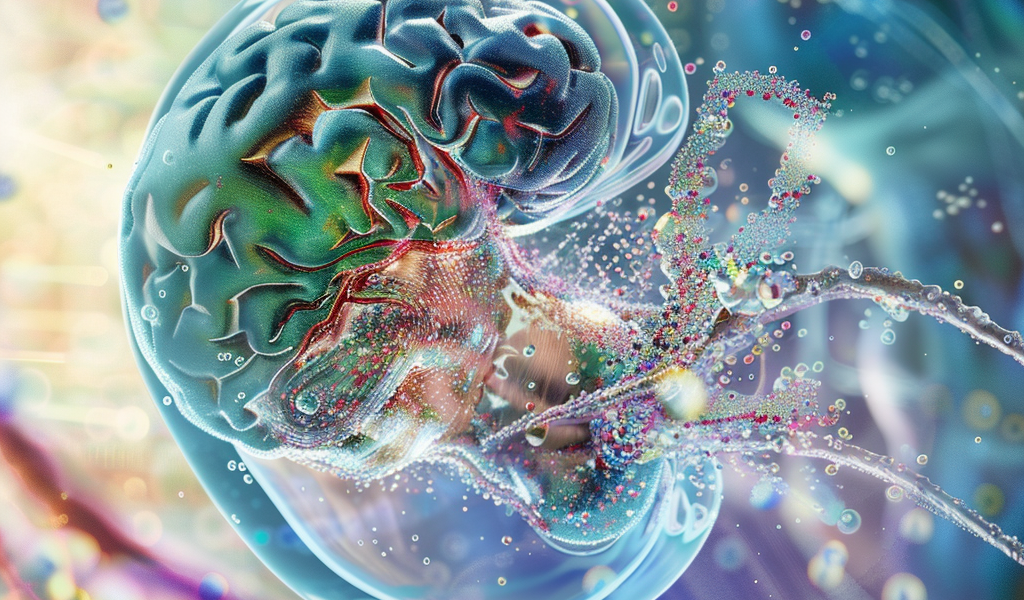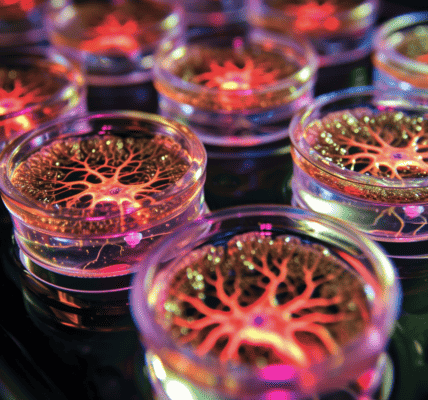New Advances in Prenatal Gene Editing: In Utero Delivery of Nanoparticles for Brain Gene Modification
In a groundbreaking study, researchers from the University of California, Davis, and the University of California, Berkeley, have unveiled a novel method for prenatal gene editing using acid-degradable nanoparticles. This innovative approach aims to address the underlying causes of neurodevelopmental disorders by delivering mRNA through densely PEGylated lipid nanoparticles (LNPs) into embryonic brain cells, achieving significant genetic modifications while maintaining low toxicity.
The research, published on October 28, 2024, demonstrates a high-efficiency technique for in utero gene editing using a mouse model. This method effectively overcomes traditional barriers associated with gene editing, allowing for the safe transfection of neural stem cells with CRISPR-associated mRNA. The result is the ability to introduce precise genetic edits across large areas of the brain, potentially leading to substantial developmental benefits.
The scientists conducted intracerebroventricular (ICV) injections of acid-degradable PEGylated LNPs (ADP-LNPs) into the brains of embryonic mice. These injections resulted in high transfection rates and a favorable safety profile, making this approach a promising candidate for addressing disorders such as Angelman syndrome and Rett syndrome before they manifest.
One of the key advancements of this method is the use of ADP-LNPs, which differ significantly from standard LNPs that have been primarily effective in adult applications. Standard LNPs have shown limited efficacy and considerable toxicity when used in developing tissues. The new ADP-LNPs tackle these challenges by incorporating dense PEGylation, which enhances cellular uptake while minimizing inflammatory responses. Additionally, their acid degradability allows these nanoparticles to break down within cells after delivering their genetic payload, further reducing potential side effects.
In the study, researchers injected ADP-LNPs containing either Cre mRNA, which is part of the Ai9 genetic reporter system, or Cas9 mRNA paired with guide RNAs (gRNAs) targeting specific genes into the brains of embryonic mice at a critical developmental stage (day E15.5). This timing is crucial, as it allows for the effective targeting of neural progenitor cells during a period of rapid brain development.
The implications of this research are significant, as it opens up new possibilities for treating genetic disorders before birth. By enabling targeted gene editing in the developing brain, this technique could revolutionize the approach to managing conditions that currently have no cure or effective treatment.
As the field of gene editing continues to evolve, this study highlights the potential of combining advanced delivery systems with CRISPR technology to create safer and more effective therapeutic options. The ability to perform in utero gene editing not only represents a scientific breakthrough but also raises ethical considerations regarding the future of genetic interventions in humans.
Researchers are optimistic about the future applications of this technology, with ongoing studies aimed at refining the delivery methods and expanding the range of genetic disorders that can be targeted. As they continue to explore the capabilities of ADP-LNPs and other innovative delivery systems, the potential for prenatal gene therapy becomes increasingly tangible.
In summary, the development of this new method for in utero gene editing represents a significant step forward in the quest to combat neurodevelopmental disorders. With further research and validation, this technology could pave the way for transformative treatments that address the root causes of genetic conditions before they manifest, ultimately improving the quality of life for affected individuals and their families.





